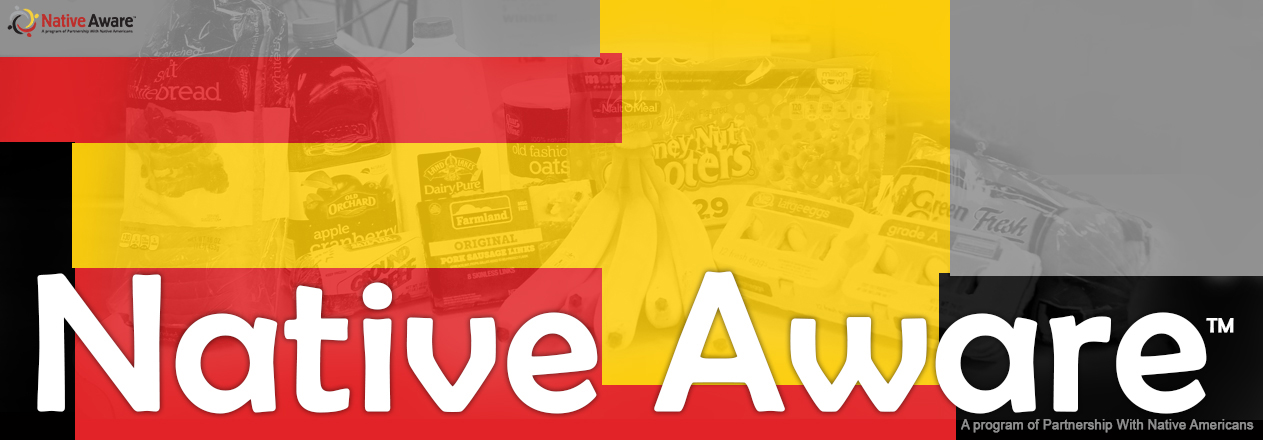#NativeAware

Many reservations are food deserts devoid of fresh vegetables and up to an hour from the nearest grocery store. For instance, the Navajo Nation has only 13 reservation grocery stores for 175,000 residents. Lack of access to fresh, healthy foods fuels high rates of nutrition-related diseases like diabetes and obesity.
Food deserts and poverty leave 1 in 4 Native families impacted by ‘food insecurity’ and ‘food hardship’ with more and more families using food banks as a long-term solution to make ends meet.
- Food insecurity is insufficient quality or variety of food for a healthy, active life.
- Food hardship is the inability to afford enough food for you and your family.
On top of this, many reservation communities have contaminated drinking water due to mining.
Here's how PWNA supports nutrition on the reservations:
- Emergency food boxes and breakfast foods for Native American Elders when social security runs low
- Food bank supplies for reservation families in need
- Staple foods for senior centers/soup kitchens that serve hot meals to Elders
- Bottled water
- Holiday meals (Thanksgiving, Christmas)
- Community gardens
- Train-the-trainer (T3) programs to promote healthy cooking, focusing on locally available ingredients and ancestral recipes that predate diabetes.
Train-the-Trainer (T3) is a six-month, cohort-based training service focused on nutrition skill building for Tribal communities. This service targets professional cooks, cooks' aides, and local practitioners working in K-12, senior center, community program and healthcare settings with a responsibility for nutrition and wellness. T3 training covers healthy cooking, Native food history and food as medicine, and the skills to teach other members of the community and beyond. Our nutrition focus has also expanded to encompass Food Sovereignty and food access solutions.
Learn more about food deserts and how PWNA is fighting food insecurity through long-term solutions:
- Video — Food insecurity documentary (PBS)
- Video — Water emergency relief
- Download — Combating food insecurity
- Blog — Native youth food sovereignty summit

Donate to Help Today
Help everyone be #NativeAware for a brighter future!
#PWNA4hope www.nativeaware.org